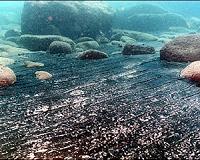| . |  |
. |
Washington (AFP) Aug 3, 2010 Oil is no longer spewing from the ruptured BP oil well but the disaster is far from over for families who live along the US Gulf coast, and their kids in particular, a major study said Tuesday. Of 1,200 coastal residents surveyed last month by researchers at the National Center for Disaster Preparedness (NCDP) at Columbia University, a third said their kids have developed mental, behavioral or physical problems because of the spill. The problems ranged from respiratory problems and rashes to feelings of sadness or nervousness, difficulty socializing with other children, or trouble getting to sleep, parents told the researchers. More than 70 percent of parents said their children were doing less swimming, boating and playing in the sand, and around one in five said their kids were spending less time outdoors. "Our survey, done after the well was capped, shows there is a significant and persistent public health crisis underscored by the large number of children with medical and psychological problems related to the oil disaster," said Irwin Redlener, director of the NCDP. "Over the last few days we are seeing an effort by officials who are suggesting that, as the oil is less visible on the surface, the crisis is over. Clearly, this is far from the case." In addition to worrying about their kids' well-being, Gulf residents are concerned about everything from declining property values, the loss of their way of life, and the long-term health impact of the spill on themselves, the study says. In the wake of the oil spill, more than a quarter of all residents and nearly four in 10 of those who earn less than 25,000 dollars a year said they might move away from the area, unconvinced by the message that the capping of the gushing well meant the end of the crisis for them. Children whose parents were thinking about moving away were almost three times more likely to have mental health distress than children whose parents were not considering upping stakes and going. In a separate study conducted in June by researchers at Louisiana State University, seven in 10 Louisianans said they were worried they would have to move away from the area, where 60 percent of the respondents had lived all their lives and another 20 percent had lived for at least 20 years. More than 80 percent of the LSU study respondents said they were worried about how their family, friends, and neighbors will make a living over the next couple of years because of the oil spill. People who lived within 10 miles (16 kilometers) of the Gulf of Mexico coast in Louisiana and Mississippi were interviewed by phone for the Columbia survey between July 19 and July 25. The well that had been spewing oil into the Gulf since April was capped on July 15. One in five of those surveyed said their household income had fallen because of the spill, and poor residents -- those who earned less than 25,000 dollars a year -- felt the pinch more than the well-off. "Much as Hurricane Katrina had its greatest effect on those with the least, the oil spill is also having a greater impact on those coastal residents who are economically vulnerable," said David Abramson, director of research at NCDP. More than eight in 10 coastal residents said they are doing less fishing in the Gulf, a highly popular pastime for both residents and tourists, and a backbone of the local economy that is deeply engrained in the Gulf way of life. Two-thirds of the people surveyed said they were not sure local seafood was safe to eat, even though local authorities have reopened large tracts of state waters to fishing and federal officials have said they are confident Gulf seafood is safe.
Share This Article With Planet Earth
Related Links Our Polluted World and Cleaning It Up
 New study aims to locate underwater oil from Gulf spill
New study aims to locate underwater oil from Gulf spillMiami (AFP) July 31, 2010 With oil from the BP spill fast disappearing from the surface of the Gulf of Mexico, a marine conservation group is embarking on a two-month expedition to evaluate the impact of oil remaining below the surface. The study by the conservation group Oceana set to begin August 7 is among several aiming to learn the potential long-term effects of the disaster from the ruptured BP well that releas ... read more |
|
| The content herein, unless otherwise known to be public domain, are Copyright 1995-2010 - SpaceDaily. AFP and UPI Wire Stories are copyright Agence France-Presse and United Press International. ESA Portal Reports are copyright European Space Agency. All NASA sourced material is public domain. Additional copyrights may apply in whole or part to other bona fide parties. Advertising does not imply endorsement,agreement or approval of any opinions, statements or information provided by SpaceDaily on any Web page published or hosted by SpaceDaily. Privacy Statement |